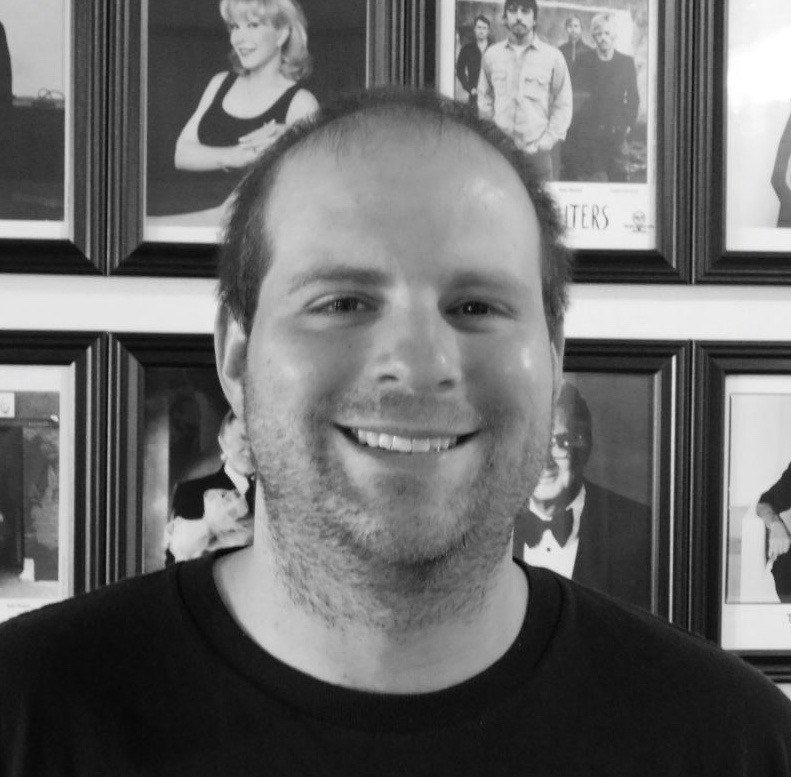 Photos courtesy of One Fourteen Entertainment
Photos courtesy of One Fourteen Entertainment Yaniv “Nev” Schulman first found fame as one of the stars of the hit film “Catfish.” The immense success of “Catfish” – reportedly produced for $30,000 – led to the film being turned into an MTV series that is currently in its seventh season. Schulman is also the author of the book “In Real Life: Love, Lies & Identity In The Digital Age” and a host of the Facebook Watch series “We Need To Talk,” which Schulman co-hosts with wife Laura Perlongo.
I had the pleasure of speaking with Nev Schulman – who splits his time between New York and Los Angeles these days – by phone about the past, present and future of “Catfish.” Highlights from our interview are below. And simply put, the guy has a lot going on personally and professionally, with many projects currently in development.
Jewish Journal: The latest season of “Catfish,” how long did you film it for?
Nev Schulman: Well as it goes with “Catfish,” we can’t make it quickly enough as far as MTV is concerned. So we always essentially have episodes ordered and we’re always in production. And basically as we get through chunks of the episodes they’ll air them. So, theoretically, I think they ordered this chunk of episodes for season seven back at the beginning of last year. We started filming obviously with Max and Max left, and then we started filmed the remaining episodes kind of non-stop since then.
JJ: This season has some very surprisingly big names guesting in there. How far in advance do you know that the people are going to be involved with an episode?
NS: The process for getting guest hosts is tricky because there’s no set schedule for the episodes. The stories come in very organically and often without warning. We will connect with our producers, we’ll vet the story and then work with the people involved to create a calendar, a schedule that works. Once we have that set then we can go to the people who were interested in co-hosting and see who is available to work that week. So it requires a lot of moving pieces.
So we essentially we have a list of people that we like to work with, who we’ve reached out to who are interested in working on the show, being a co-host. Then when an episode comes up, we kind of go out to whoever is available to see if they can be in it and then go from there.
JJ: When it comes to doing all the research to track down people, do you ever use private investigators?
NS: We’ve never used a private investigator, mainly because of the information that we have for people – aside from the phone number – is usually made up, so it wouldn’t do a whole lot of good. I mean, I’m sure a private investigator could find information. But I think the function of the show, to some extent, is seeing me and whoever I’m hosting with using tools that are readily available to anybody, to help educate people watching on how they themselves can prevent this from happening to them. Because not everybody has the means to hire a private investigator, but for the most part everyone has access to the Internet. So I think we try to stay away from private investigators because we want it to be something that anyone watching can do themselves.

JJ: Your show on Facebook, “We Need To Talk,” that’s you showing that you’re absolutely someone who likes to be in front of the camera. Yet when “Catfish” started I would argue that maybe you weren’t as comfortable. What was your transition to feeling comfortable in front of the camera?
NS: Yeah, it definitely took some time. I’ve always enjoyed the spotlight. As a kid I was sort of the class clown and then I sort of through middle school and high school I was a dancer and I always loved performing. When I started my film business with my brother occasionally I would sort of appear on-camera, but it was never something that I really actively was pursuing or thought seriously that I would do as a job.
So the first major moment for me obviously was when the “Catfish” documentary came out, which was very revealing and really put me and my personal life sort of out in the public. And I think had the reception of the film not been so warm, and if people hadn’t responded to me and my personality and the sort of way that I had handled that situation with such approval, I might have shied away from kind of pursuing a job on TV. But so far I’ve got to say for the most part what I do on the show and how people view that and how they respond to me has been so positive. It’s been really nice and I’ve just become more and more comfortable with it.
JJ: “Catfish” could go for hundreds of episodes or even thousands of episodes as there’s no shortage of people to investigate. How far down the line do you hope to take it?
NS: You know, I’m very aware of the fact that while catfishing is still a widespread issue and probably isn’t going away anytime soon, the window or the cultural window of the show existing, it is closing. It’s almost been a decade. I meet people who are now working as production assistants who started watching my show in high school then went to college and are now working and they’re on the show and they think it’s so cool. It’s wild to me that an entire generation has grown up with the show. I don’t feel necessarily it should go forever. I think at some point in the not too distant future it might make sense to end on a higher note, but at the same time I really do feel it is very helpful.
I think a lot of people who watch it watch it because they want to see people expressing themselves, and talking about their feelings in a safe environment, and that’s something that we need more of in general for people. Addressing issues like mental and physical health and anxiety and trust are things that I think people want to listen to you and want to be involved in. So I think it could keep going for as long as people want to keep watching it. I’m happy making it so till something better comes along, I’m loving it .
JJ: To me personally I think it’s one or two generations removed from “Loveline.” Has that comparison ever come up for you?
NS: I’m honored to sort of have someone compare our shows, but yeah I agree. I think similarly it is something that people young and old who have either grown up watching it or finding it now can enjoy and engage with and discover or rediscover. So as far as shows go it’s pretty ageless.
I do obviously think in 30 years we’ll look back at the “Catfish” anthology and it’ll kind of shock our grandchildren for them to realize that there was a time when the Internet was totally lawless and people could do whatever they wanted. “You wouldn’t believe it but you know you could have fake profiles.” It will seem like a distant, distant past. But for the moment it’s still very relevant.

JJ: So back to “We Need To Talk.” Is that something that you hope to do for years and years? Do you hope to do more projects like that?
NS: So I love having, starting, being part of and continuing conversations around topics that are both relevant but also oftentimes uncomfortable or difficult. And the “We Need To Talk” series on Facebook with my wife is a great example that. We acknowledge that our relationship is somewhat unconventional but we’ve [both] been in many relationships before and we’ve found one that we’re really happy with and that we’re making work.
So we feel strongly that like even though we don’t have the answers, we’re comfortable having the conversation and a lot of people aren’t. So we hope that we can use this show to help people you know just start the conversation which will hopefully lead them to their own resolution. But I’d love to… broaden that concept to a larger audience whether it’s a sort of talk show, or whether another sort of web-based forum, or Netflix show. Whatever it might be I’d love to keep working in that space.
JJ: Do you have aspirations to do more projects that are scripted?
NS: I don’t think I have what it takes to be an actor. Forget the skills needed, but I don’t even think I have the drive because you can’t just phone it in if you’re going to be on-camera and expect people to give a s**t. Excuse my French there…
But I am really interested in working on projects that are scripted and a friend of mine, Brett Neeson, who’s a writer, we developed and he wrote a really awesome script we sold it to Audible, a podcast with an option to turn it into a TV show. It’s very cool, it’s based in reality but it takes some liberties and tells a very exciting sort of dramatic sci-fi story about the current state of life extension and the idea of sort of the mythical fountain of youth. So yeah I’m into all kinds of projects, whatever strikes my fancy on that given day.
JJ: So in closing, any last words for the kids?
NS: I’ll be earnest… I think people underestimate how people underestimate the power of listening. So if you really want to help someone out who you think might be going through a hard time, the best thing you can do is ask them how they’re feeling and then just really wait and let them answer you. And don’t go into the conversation wanting to tell them something or having an opinion about what you think they might be feeling. Just be an ear for them to let them open up and tell you about themselves and what they’re going through.
More on Nev Schulman and “We Need To Talk” can be found online.























 More news and opinions than at a Shabbat dinner, right in your inbox.
More news and opinions than at a Shabbat dinner, right in your inbox.